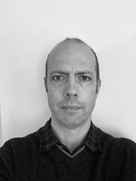
Nick Colvin served in the Royal Navy for 2 years, going on to serve in the Royal Engineers for 18 years leaving with the rank of Major in 2022. Nick advised “I was a Technical Engineer specialising in Electrical and Mechanical engineering, delivering operational infrastructure across the MoD. This included as Programme Manager for DIO in the Far East, SO2 J4 infra–Middle East and OC of 516 Specialist Team Royal Engineers as a bulk fuel specialist. My last role was as Regimental 2IC of 22 Engineer Regiment, delivering Armoured Engineering capability to 3rd UK Div. In this role I was Chief of Staff of the regiment focusing on future planning and training but also covering staff and personnel, operations, logistics and vehicle maintenance. A typical day will start with PT then dealing with emails after NAAFI break. I would have team meetings with the departments and sub-units in the afternoon and would finish the day catching up on the actions generated by the day’s activities.
The most obvious skills I gained were in engineering which I developed into a broad range of technical skills. This progressed into Project and Programme Management as well as Construction Management, often in several countries at once. This led into requirements management and client engagement as well as understanding global supply chains and building regulations.
I am now an Associate Project Manager, specialising in Defence and Sensitive Projects for AECOM Ltd. I got this role thanks to BuildForce who supported me, and the rest is history!
As an Associate PM I am at the similar level I was in the Army. I run 3-4 medium sized projects for MoD across the TLB’s, all with unique and interesting challenges and bigger budgets than I ever had in the Army. I mostly provide consultancy services, where I build up my project teams from all the construction disciplines to suit the project and set them programmes and targets to ensure we deliver the requirement on time and on budget (or under if possible). I lead the team for all client engagement, provide direction and review all the work produced to ensure the quality of it remains high. This does involve travel, with opportunities both nationally and internationally.
I will typically start the day with a team meeting, reviewing the project progress and preparing them for a client meeting later. There may well be higher level meetings within my sector or wider business. Having set the project team goals following the meeting I will review or produce documentation as well as develop bids to ensure I have a pipeline of work for the future. Once a week I am normally on site, leading the team as the company rep for all client engagement to help better understand client needs and often translating Defence speak into civilian language. This can be anywhere, with current and prospective client, so having a good sales pitch is very handy.
Building my network of industry contacts really helped with my transition. Although I thought I had plenty off my own back, I realised most were not in areas I wanted to pursue. Through BuildForce I was able to get links in the companies I wanted to work for, often getting interviews until the right job turned up.
Knowing my worth and opportunities out there were the biggest challenges. Between BuildForce and a lot of people across the industry with MoD backgrounds to work this out before getting interviews so that I could sell myself in the best way without pricing myself out.
My transition was during COVID so I was limited as to what career fairs were happening, but this is what I would liked to have attended. Many ex-Forces people go to these events to recruit and help people find their worth and future career. I would likely have made connections with the companies I was interested in sooner, so missed that opportunity.
The biggest skill I use (and most transferable) is Project Management, matching resources to tasks to achieve the outcome for the client. My technical background set me up perfectly for this, having delivered projects all over the world but now I have a wider pool of skills to draw on. Additionally, my understanding of MoD needs and language means I can improve the requirement and often improve on the ask, while making sure the project team understands what the client actually wants. This definitely sets me apart from my non-military colleagues and is greatly valued by the clients.
Have an idea of what you want to do then start knocking on doors. I found submitting endless CVs online pointless, but talking directly to people was very effective. Careers Fairs, LinkedIn, old friends, and BuildForce can help get you in the right direction until you find what you are looking for. Job descriptions can often be misleading so do your research on the company, which will be invaluable when get an interview. Attend all interviews where possible, most are online these days, as you might not fit one role, but another may be coming that you weren’t aware of, or you may get a recommendation you didn’t expect. Be flexible and open minded, there is a lot of opportunity, and you will find something you want rather than making do. Your first job may well not be perfect, but it will be a good stepping stone for the next, if you need it.
A career in construction is unique, challenging, and rewarding. As veterans we are motivated, reliable, and limitless, highly valued characteristics in the world of work.”